Search Results
Showing results 1 to 8 of 8
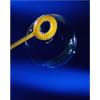
Measurement: Bubble Mania
Source Institutions
In this math lesson, learners practice measurement skills as they examine a soap bubble print. Learners follow a recipe to make a soap bubble solution.
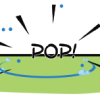
Big Bubbles
Source Institutions
How do you measure a bubble when it's floating? You can't really, but in this activity, learners can measure the diameter of the ring of suds a bubble leaves on a flat surface.

Bubble Sculpting
Source Institutions
In this activity, learners develop spatial reasoning skills as they blow bubbles and observe what happens when the bubbles connect.
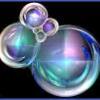
Strange Soap
Source Institutions
In this physics activity, learners experiment with soap bubbles to see what variables affect their size. They explore how soap film and bubbles always seek the smallest surface area possible.
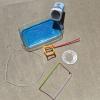
Burst a Bubble
Source Institutions
In this activity, learners will create their own bubble solution. Learners will explore chemistry, geometry and trial and error through this activity.

Soap Bubble Shapes
Source Institutions
Learners explore three-dimensional geometric frames including cubes and tetrahedrons, as they create bubble wands with pipe cleaners and drinking straws.
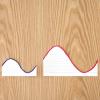
Soap-Film Interference Model: Get on our wavelength!
Source Institutions
By making models of light waves with paper, learners can understand why different colors appear in bubbles.
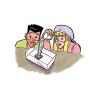
Production of a Gas: Controlling a Chemical Reaction
Source Institutions
Learners mix vinegar and baking soda to produce a gas. With the addition of a bit of liquid soap, the gas becomes trapped in measurable bubbles.
